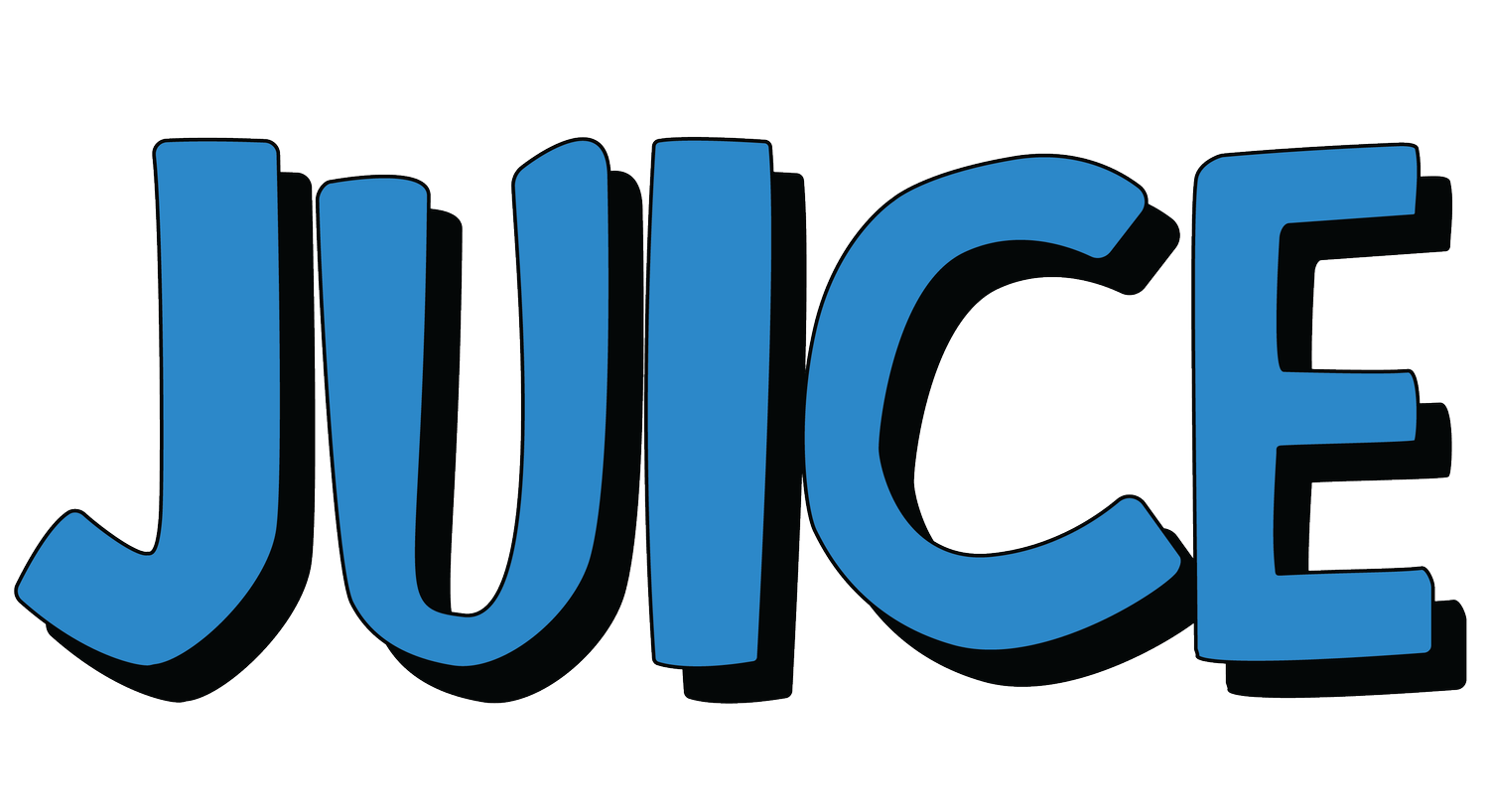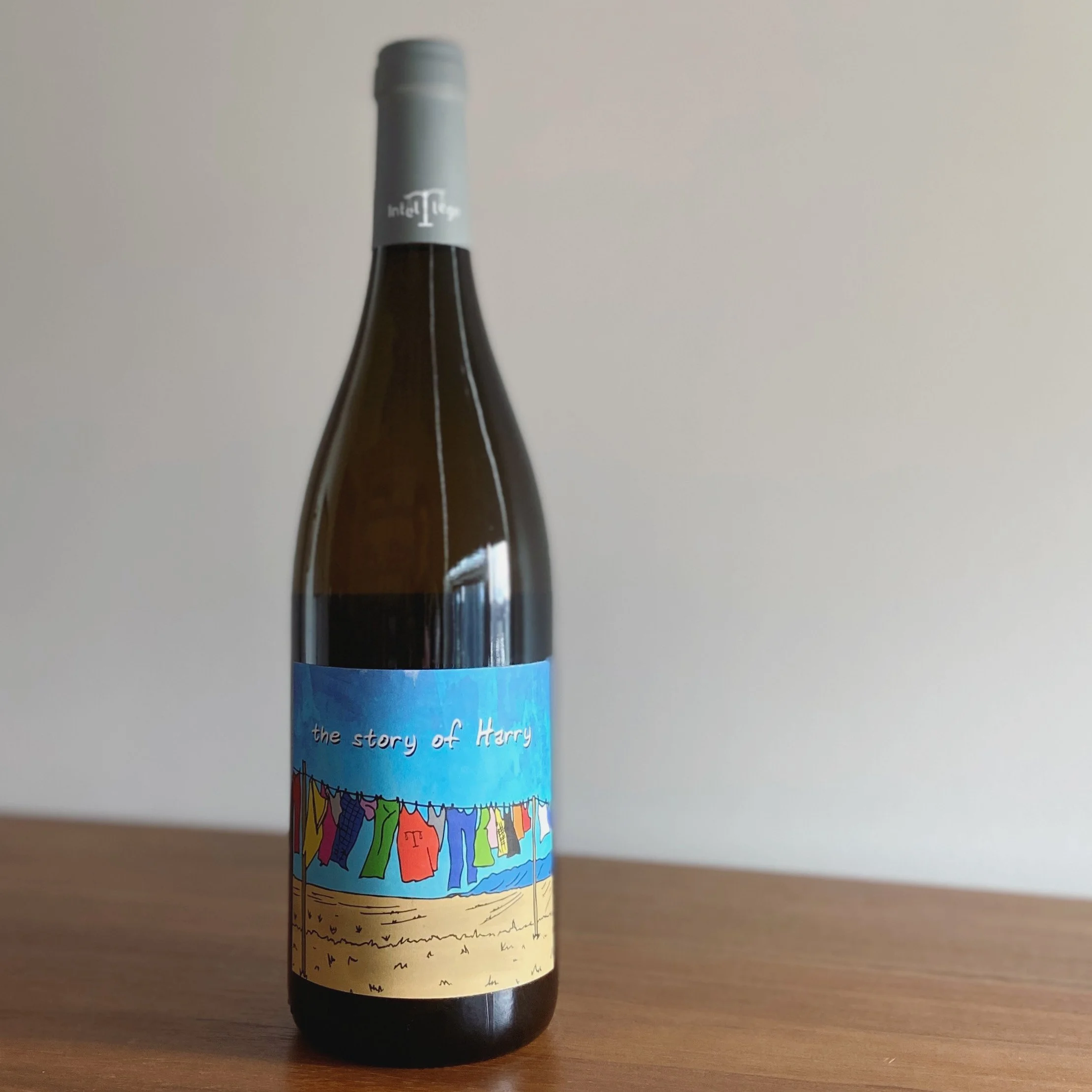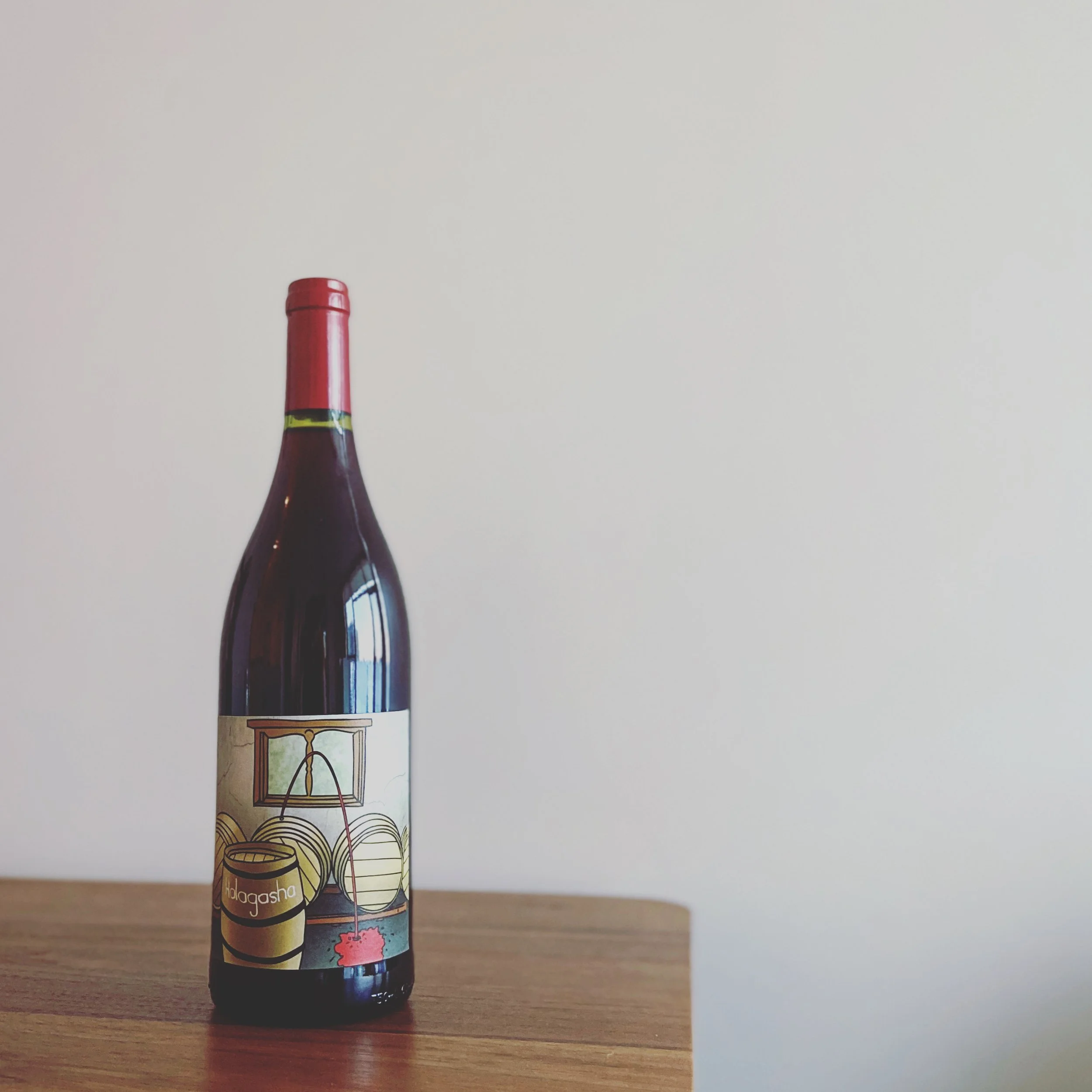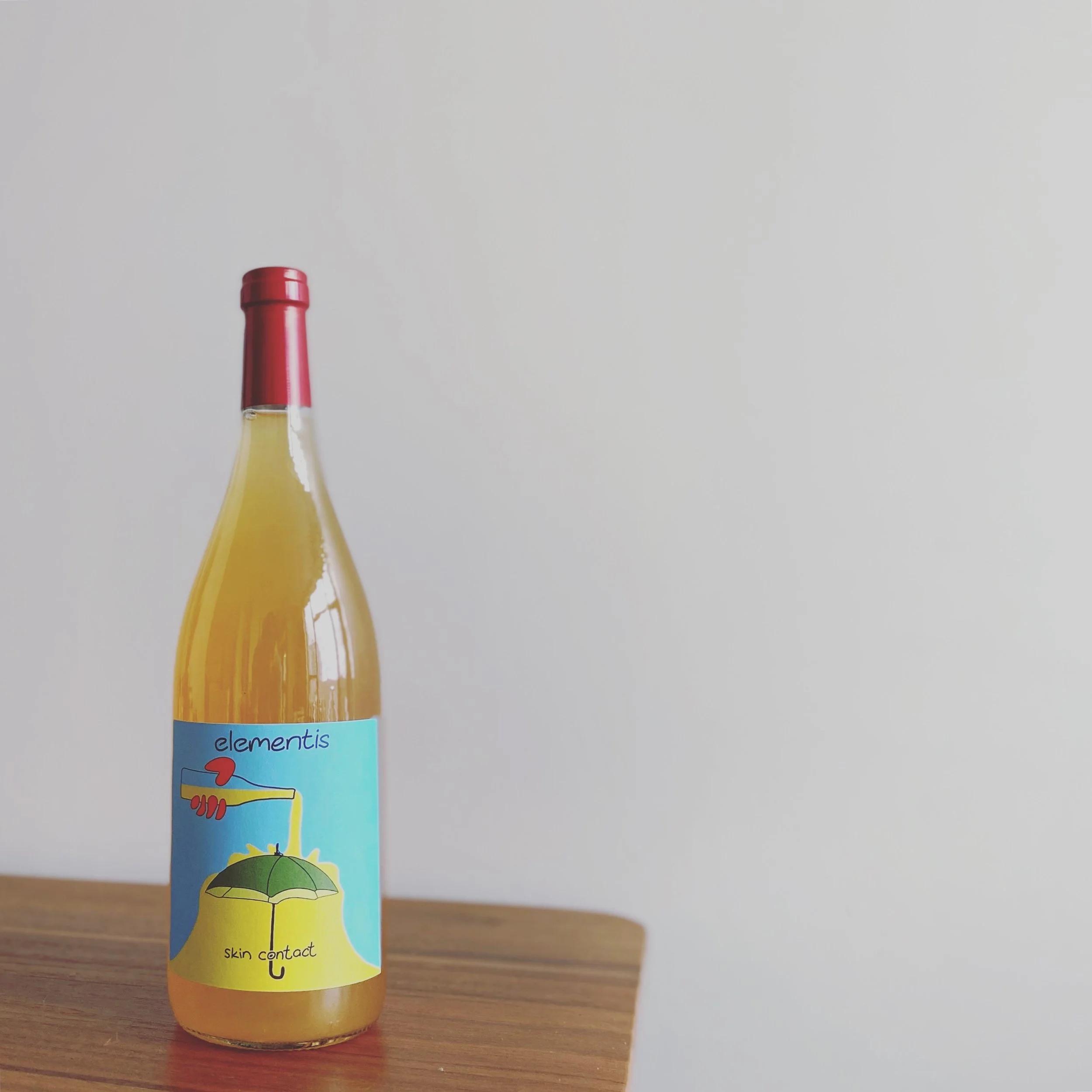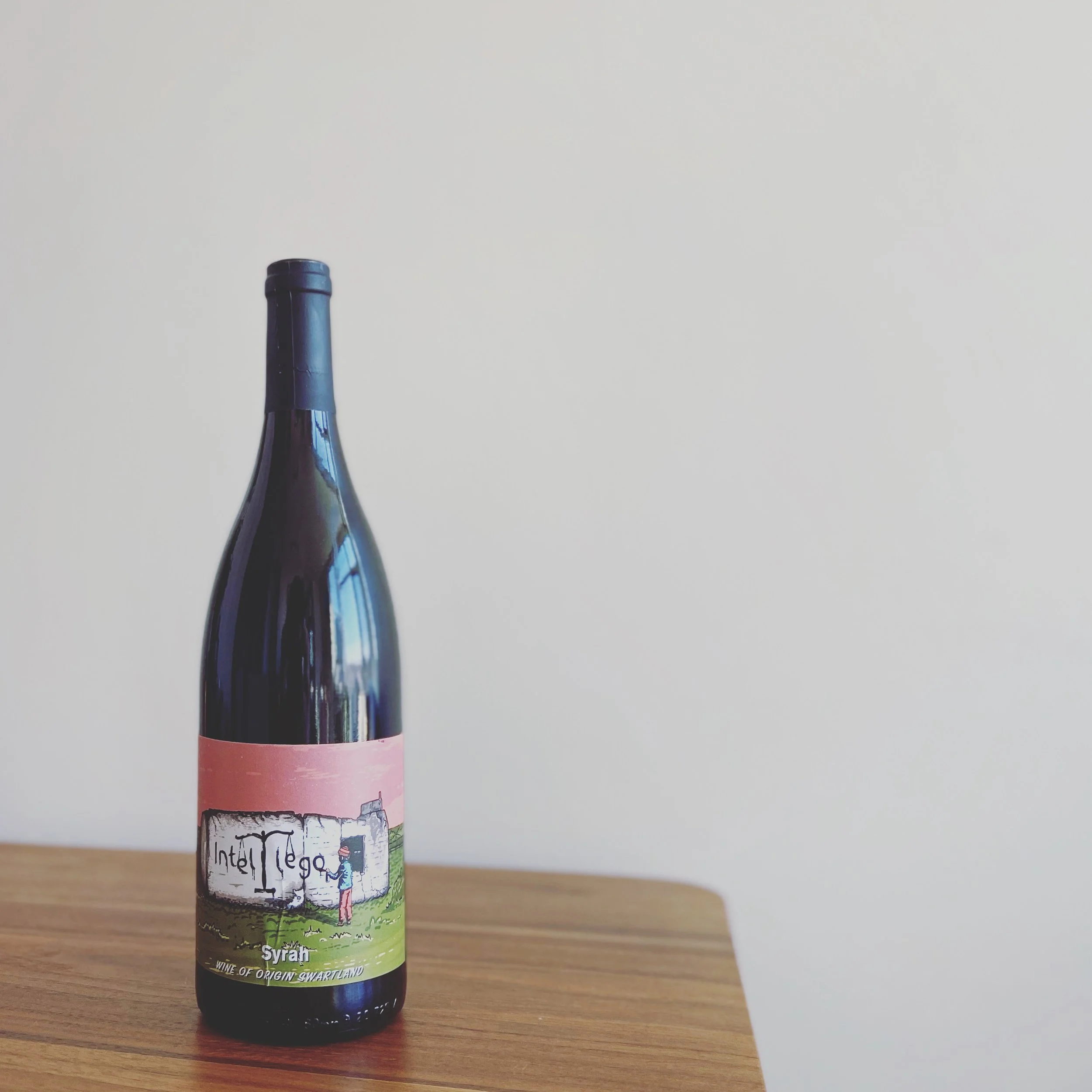INTELLEGO
-
Ten years ago, a retired opera star walked into the wineshop I was working at. She had just immigrated to Canada from South Africa and was missing her homeland's warmth, so she decided to import her country's wines to spread some sunshine. We tasted through the line-up, and although there were some tasty bottles, most fell short. I was so charmed by her story I asked if she'd be willing to broker in wine from a few smaller producers for me so I could continue to support her endeavours but home in on the energetic style I'm so fond of. She cheerfully agreed – she had never worked with wine before, so any help was appreciated.
She perused my list and discovered Jurgen Gouws, the proprietor of Intellego, was old-school friends with her daughter. They connected via Facebook (long before he built an actual website) and agreed to a partnership. A few months later, I had the wines on the shelf. They were a huge hit, and we promptly sold out. On our second order, we agreed to share a small amount with our friends at Pigeonhole, who also promptly sold out.
Three years later, after I had left the retail world and started Juice Imports, the importer contacted me again. She had dire news. She had fallen ill and could no longer keep up with her importing business. She asked whether I'd be willing to take over Intellego for her, and despite our minuscule budget, I agreed. Conveniently, six months later, I was in South Africa and had an opportunity to meet Jurgen in person.
-
Jurgen Gouws is a wiry farmer born in a small town 800km north of Cape Town, surrounded by citrus trees. He has fond memories of visiting his grandparent's farm outside Stellenbosch, which may have contributed to his eventual move to agriculture. They grew grapes and other fruits, all sold to the co-op. They sold the farm in 1990, but Jurgen eventually found his way back into the vines.
Like many aspiring winemakers, he attended Elsenburg, the western cape's hub for agricultural studies. After completing his degree (and playing a little rugby), he started working harvests in France (Stephan Ogier, Matassa), Spain (Terroir al Limit), and Russia, but eventually settled back into South Africa.
His turn towards natural wine happened organically. He enjoyed the flavours and philosophy, trying to capture genuine expressions of terroir instead of stylizing wine via manipulation. He remembers an instance in 2011 when Camille Lapierre opened a bottle of Tierry Puzelat's sparkling red, which left an impression.
His first independent wines were made at Lammershoek in 2009, where he was assistant winemaker to Craig Hawkins (Testalonga). This mythical estate was helmed initially by Eben Sadie, who influenced Craig and Jurgen considerably. The farm was an early adopter of organic farming and even employed biodynamic practices, a first in South Africa.
Intellego started as roughly a thousand bottles, one tank of red and one of white, made in a corner of the winery. The two continued to work together for four years before each went off to pursue their dreams full-time.
-
Jurgen wasn't blessed with land, so he started making friends with farmers, essentially driving around and knocking on doors, looking for organic sites in the Swartland. He now leases a third of his vines and purchases the rest of his fruit from like-minded farmers. There's a strong bias towards dry-farmed vines. He believes cultivar selection is paramount in hot, arid regions like much of South Africa's Western Cape. He purchases fruit from entire blocks instead of working on tonnage contracts. This methodology is more fair for the farmers but requires more flexibility on his end.
-
When Jurgen's not making wine, he's surfing. While in South Africa, he not only beat Craig and me in a friendly Bowls match, he could not meet because the surf on the West Coast was supposed to be particularly good (despite the sharks). His most iconic wine is named after a beach in Bali: Kedungu.
Intellego translates from Latin as 'I Understand'. Jurgen hopes that the drinkers of his wines will come to know the countryside he’s so fond of through wine. From an early age, he knew he wanted to stay in the Western Cape; sharing the uniqueness of the landscape via authentic wine seems like an incredibly objective. In his mind, this goal can only be achieved via sustainable farming and minimalist winemaking.
MORE FROM SOUTH AFRICA: TESTALONGA | CRAVEN
GROWN AND MADE ON THE TRADITIONAL LANDS OF THE: SAN | KHOEKHOE
2021 KEDUNGU
Jurgen’s entry-level blend is a combination of Mourvèdre (60%),Cinsault (25%), Syrah (8%), and Pinotage (7%), planted between 1988 and 2009. Soils are quite diverse ranging from quartz rich clay to ferricrete. Fermentation was semi-carbonic for eight days before being pressed off into neutral 500l barrels. After élevage the wine rests in stainless steel before bottling. 11.5% ABV
2021 CHENIN BLANC
This wine is a blend of two dry-farmed sites, one planted in 1980 on decomposed granite, and the second planted in 2002 on Oakleaf gravel. The two plots ripen three weeks apart, complimenting each other wonderfully. They were each whole-cluster pressed into neutral 228 and 500l barrels. After eleven months of élevage the wine is racked and bottled. 13% ABV
2022 PINK MOUSTACHE
This light red is made from Syrah (38%), Cinsault (48%), and Mourvèdre (19%) planted in the Swartland. The Cinsault sees drip irrigation, but the Syrah is dry farmed. Soils range from Oakleaf gravel to Ferricrete, and Shale. The Cinsault undergoes whole cluster fermentation for four days while the other two varieties are direct pressed. The wine is then racked into stainless steel for an additional six weeks before bottling.
2021 THE SLEEPING CO-PILOT
Viognier vines planted in 2003 on Oakleaf and Glensora are the inspiration for this wine. Unlike many of the vineyards Jurgen works with, this one is judiciously irrigated and the vines are trellised. Whole clusters were fermented in open-top tank for two weeks before the wine is pressed off into neutral 300 & 500L barrels. After ten months, the wine is bottled. 11%
2022 THE STORY OF HARRY
This cuvée comes from a site planted in 1999 and 2002 on decomposed granite and shale. It is made from a combination of Chenin Blanc (78%) and Chardonnay (22%). 40% of the Chenin was fermented on skins for about a week while the rest were direct pressed into neutral barrel. 12% ABV
2021 HALAGASHA PINOTAGE
This wine comes from dry-farmed Pinotage vines planted in 2000 on decomposed granite in the Swartland. The grapes were fermented as whole bunches for nine days before being pressed off into neutral 225L barrels for a five-month élevage. The wine is then racked and blended in stainless steel where it comes together for a further month before bottling. Halagasha is the Xhosa term used to celebrate a soccer goal - Pinotage in itself is a celebration of something uniquely South African.
2021 ELEMENTIS
This cuvée comes from a site planted in 1988 on Oakleaf Gravel. The Chenin Blanc old bush vines are dry farmed, withstanding the Swartland sun. The grapes are destemmed into tank and fermented on skins for 13 days before being pressed off into neutral puncheon for a ten month élevage.
2019 SYRAH
After working in Cote-Rotie at Domaine Jamet, Jurgen fell in love with Syrah. This was the first cuvée made under his own label and has become their flagship. The fruit comes from vines planted in 1999 on granite. The bush vines are farmed without irrigation. After a ten day whole-cluster fermentation the wine is pressed off into neutral barrel for a ten month élevage.
